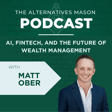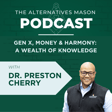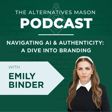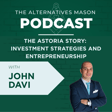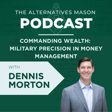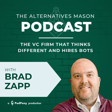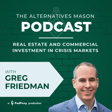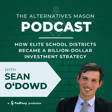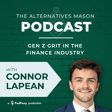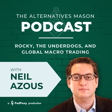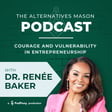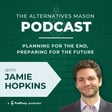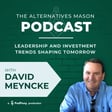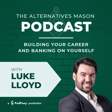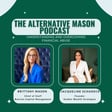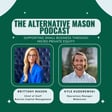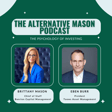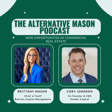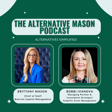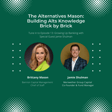
The Alternatives Mason: Building Alts Knowledge Brick by Brick | Episode 14 | Financial Education for the TikTok Generation featuring The Wall Street Skinny
Welcome to The Alternatives Mason: Building Alts Knowledge Brick by Brick. Banrion Capital Management uses technology to help independent advisors scale and educate themselves on alternative investments. Since education is such a big piece of the Banrion mission and business, we are excited to kick off this series to dive into the nits and grits of the alternatives space. Episode 14 "Financial Education for the Tik Tok Generation" features Kristen Kelly & Jen Saarbach, founders of The Wall Street Skinny.
Kristen and Jen are two lifelong friends and proud nerds. They grew up pursuing other academic interests, but found their way into the financial services industry. They are podcasters, teachers, mentors, and community builders looking to inspire, educate, and entertain the next generation.
Kristen Kelly has spent over 15 years working and teaching in the financial services industry. After graduating from Brown University with a Bachelor’s Degree in Biomedical and Mechanical Engineering, and a Master’s Degree in Innovation, Management and Entrepreneurship (PRIME), she started her career at Morgan Stanley in New York City where she worked in the Fixed Income Sales and Trading Division on the CDO Structuring desk, on the Equity Linked Products and Project Finance desks in Global Capital Markets, and in the Financial Sponsors Group within the Investment Banking Division.
Because her passion has always been teaching, she decided to make the jump to a role in training and education and then spent over a decade at Training The Street (TTS), a leading global financial training firm before leaving to start The Wall Street Skinny with her best friend Jen. She has trained incoming analysts and associates at top tier investment banks, private equity mega funds, Fortune 500 companies, universities, and business schools all over the world.
Kristen is a mom to three girls (5 and under) and after spending 17 years in NYC, including five of those with kids, is making the move to a house with more space Boston, Massachusetts.
Jen Saarbach has spent nearly a decade working and teaching on Wall Street. After graduating from Princeton University with a degree in English, Jen leveraged her summer internship in Fixed Income Sales & Trading to land a full time job as an Interest Rates Derivatives specialist at Lehman Brothers. Jen spent the remainder of her career at Barclays Capital and Morgan Stanley, where she covered some of the world's largest hedge funds, asset managers, bank portfolios, mortgage servicers, pension funds, and insurance companies.
As someone who entered the financial services industry without a background in finance, Jen is passionate about democratizing access to Wall Street for EVERYONE. Co-founding The Wall Street Skinny with her best friend, Kristen, has enabled her to share her knowledge and expertise with the next generation. Jen also brings a talent for creative writing to an industry that can be -- let's face it --a little dry!
Jen is a mom to two boys and a Border Collie rescue dog in Charlotte North Carolina. She also has ten years of experience investing in and brokering residential real estate transactions.
Connect with The Wall Street Skinny:
Learn More About The Wall Street Skinny: The Wall Street Skinny
Connect on Instagram: The Wall Street Skinny
LinkedIn: Kristen K
